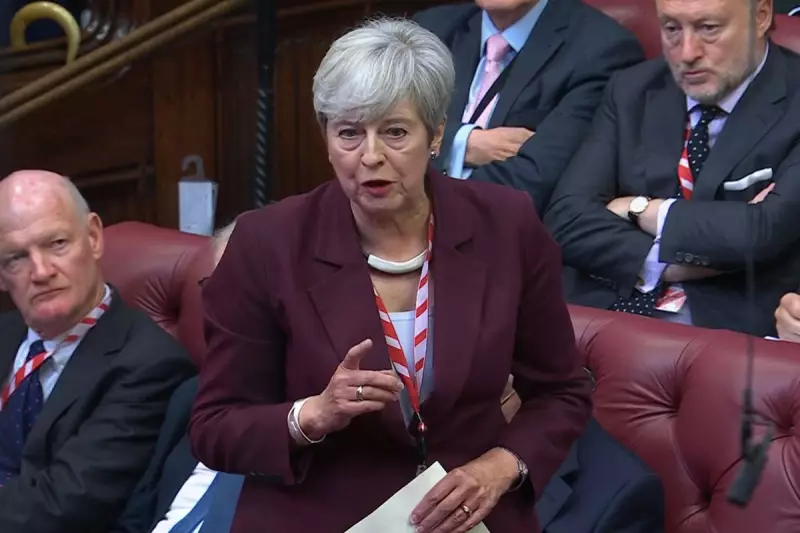
In a stunning political reversal that could alter the course of end-of-life care in Britain, former Prime Minister Theresa May has dramatically abandoned her opposition to assisted dying. The Conservative peer's unexpected endorsement comes as a significant boost to campaigners seeking to legalise compassionate choice for terminally ill patients.
From Opposition to Advocacy: A Personal Journey
Speaking during a landmark House of Lords debate, Baroness May revealed her profound change of heart, acknowledging she had "not found it an easy issue to deal with" throughout her political career. The former Home Secretary and Prime Minister confessed that previous proposals had left her "not persuaded" that sufficient safeguards existed.
"I have come to the conclusion that the time has come for a change in the law—but it must be a change that provides strict safeguards," declared May, signalling a carefully considered shift in position that carries considerable weight within Conservative circles.
The Assisted Dying Bill: Key Provisions
The proposed legislation, spearheaded by Labour peer Lord Falconer and Liberal Democrat Baroness Davidson, would permit mentally competent adults with fewer than six months to live to request medical assistance to end their suffering. The bill incorporates multiple protective measures:
- Requires two independent doctors and a High Court judge to approve each case
- Mandates a cooling-off period between request and procedure
- Exclusively applies to terminally ill adults with clear mental capacity
- Includes conscience clauses protecting medical professionals who decline participation
Political Momentum Builds Across Parties
May's intervention adds substantial momentum to the cross-party campaign, joining former Health Secretaries Stephen Dorrell and Alan Johnson in backing reform. The growing coalition spans traditional political divides, with supporters arguing that current laws create a "two-tier system" where wealthier Britons can travel to Swiss clinics like Dignitas while others face unimaginable suffering.
Conservative peer Baroness Meyer delivered an emotionally charged speech describing her 102-year-old mother's plea for assistance after outliving her quality of life. "She kept saying 'why can't I go? I've had enough'," Meyer revealed, highlighting the human stories behind the political debate.
The Road Ahead: Parliamentary Challenges
Despite growing support, the bill faces significant hurdles. Religious leaders and disability rights advocates have expressed strong concerns about potential coercion and the societal message regarding vulnerable lives. The government maintains its neutral stance, indicating that any law change would require a free vote among MPs.
With the House of Lords debate concluded, attention now turns to whether the legislation will progress to committee stage for detailed scrutiny. May's powerful endorsement may prove pivotal in persuading undecided parliamentarians that carefully crafted legislation can balance compassion with protection.
This developing story represents one of the most significant ethical debates in modern British politics, with potentially profound implications for how society approaches death, dignity, and personal autonomy.





